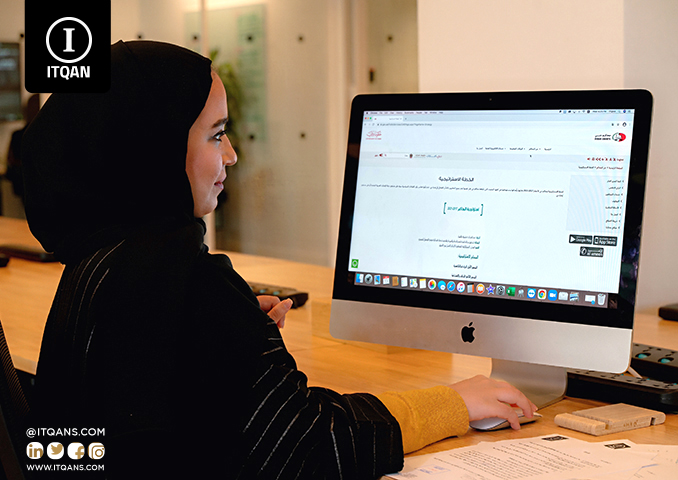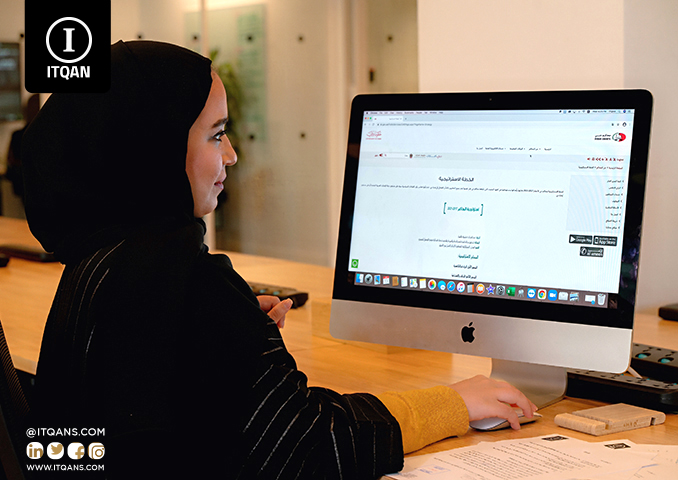Establishing a business in Dubai is an enticing prospect for entrepreneurs worldwide, thanks to its strategic location, robust economy, and business-friendly regulations. One of the critical steps in setting up a business in this thriving metropolis is opening a business bank account. For foreigners, navigating the myriad of requirements and procedures can seem daunting. However, understanding the process can significantly streamline your efforts and set your business up for success.
This article aims to serve as a comprehensive guide for foreigners looking to create a business bank account in Dubai. We will delve into the eligibility criteria, necessary documentation, and initial fees and deposits required. Additionally, we’ll explore how to choose the right bank, considering factors such as types of banks available, services, fees, and customer support. Finally, we will walk you through the application process, from filling out forms to submitting documents and undergoing verification for approval.
By the end of this guide, you will have a clear understanding of the steps involved and be well-prepared to open a business bank account in Dubai, ensuring that your entrepreneurial journey begins on a solid financial foundation.

Understanding the Requirements for business bank account
Creating a business bank account in Dubai as a foreigner involves navigating through a series of requirements, regulations, and formalities. It is essential to be well-prepared and informed to ensure a smooth and efficient process. This section outlines the key requirements you need to understand before proceeding with your application.
A. Eligibility Criteria
Before applying for a business bank account in Dubai, it is crucial to determine whether you meet the eligibility criteria set by the banks. Generally, banks will assess the following factors:
1. Business Type: The nature of your business plays a significant role. Some banks may have specific requirements or restrictions based on the industry or business activities.
2. Business Structure: The legal structure of your business (e.g., sole proprietorship, partnership, limited liability company) can influence the eligibility and type of account you can open.
3. Residency Status: While some banks may offer services to non-residents, others might require you to have a resident visa or a local sponsor.
4. Company Registration: Your business must be registered with the relevant authorities in Dubai. This includes obtaining the necessary trade licenses and permits.
B. Necessary Documentation
To open a business bank account in Dubai, you will need to provide a comprehensive set of documents. While the exact requirements may vary between banks, the following documents are commonly requested:
1. Valid Passport Copies: Copies of passports for all business owners and authorized signatories.
2. Visa Copies: Copies of the UAE residence visa for all business owners and authorized signatories, if applicable.
3. Business License: A copy of your trade license issued by the Department of Economic Development (DED) or a free zone authority.
4. Memorandum and Articles of Association: These documents outline the company’s structure and operational guidelines.
5. Board Resolution: A resolution from the company’s board authorizing the opening of the bank account and naming the authorized signatories.
6. Proof of Address: Utility bills or tenancy contracts to verify the business and owners’ addresses.
7. Bank Reference Letters: Letters from your existing bank(s) that confirm your history and relationship as a customer.
8. Business Plan: Some banks may request a detailed business plan outlining your company’s objectives, financial projections, and market strategies.
C. Initial Fees and Deposits
Opening a business bank account in Dubai often involves initial fees and deposit requirements. These can include:
1. Account Opening Fee: Some banks charge an initial fee for processing and setting up your account.
2. Minimum Balance Requirements: Banks may impose a minimum balance that must be maintained in the account. Failure to maintain this balance can result in penalties or service charges.
3. Initial Deposit: An initial deposit might be required to activate the account. The amount can vary based on the bank and type of account.
4. Service Charges: Be aware of any recurring service charges associated with account maintenance, transactions, and other banking services.
Understanding these requirements thoroughly will help you prepare the necessary documentation and funds, ensuring a hassle-free account opening experience. In the next section, we will explore how to choose the right bank for your business needs in Dubai.

Choosing the Right Bank
Selecting the right bank for your business account in Dubai is a crucial step that can significantly impact your company’s financial operations. With numerous banking options available, it’s essential to carefully evaluate each one to find the best fit for your specific needs. This section will guide you through the key considerations when choosing a bank, including the types of banks available, comparing services and fees, and assessing customer support and accessibility.
A. Types of Banks Available
Dubai hosts a range of banking institutions, each catering to different business needs. Broadly, these can be categorized into local banks, international banks, and Islamic banks.
1. Local Banks: These banks are based in the UAE and have a strong understanding of the local market. They often provide tailored services that cater to small and medium-sized enterprises (SMEs) and startups. Some of the prominent local banks include Emirates NBD, Abu Dhabi Commercial Bank (ADCB), and Mashreq Bank.
2. International Banks: Global banks with branches in Dubai offer a wide array of services and are particularly beneficial for businesses involved in international trade. These banks include HSBC, Citibank, and Standard Chartered. They often provide more extensive global reach and a broader range of financial products.
3. Islamic Banks: For businesses looking to adhere to Sharia law, Islamic banks offer products and services compliant with Islamic banking principles. These banks include Dubai Islamic Bank, Abu Dhabi Islamic Bank (ADIB), and Noor Bank. They provide various business accounts, financing options, and investment products that align with Islamic finance principles.
B. Comparing Services and Fees
Once you have identified the types of banks that align with your business needs, the next step is to compare the services and fees of each bank. Here are some factors to consider:
1. Account Types and Features: Different banks offer various types of business accounts with distinct features. Assess the minimum balance requirements, transaction limits, and additional services such as online banking, mobile banking, and multi-currency accounts.
2. Transaction Fees: Examine the fees associated with various transactions, including fund transfers, deposits, withdrawals, and foreign exchange services. Some banks may offer packages with reduced fees for frequent transactions, which could be beneficial for high-volume businesses.
3. Additional Services: Consider the range of additional services offered, such as business loans, credit facilities, trade finance, and merchant services. These services can be invaluable for managing your business’s financial needs and supporting growth.
C. Customer Support and Accessibility
The quality of customer support and the accessibility of banking services can greatly influence your overall banking experience. Here are some aspects to evaluate:
1. Customer Support: Reliable and responsive customer support is essential for addressing any banking issues that may arise. Look for banks that offer 24/7 customer support, dedicated relationship managers, and multilingual support to cater to your specific needs.
2. Branch and ATM Network: Consider the convenience of the bank’s branch and ATM network. A widespread network can facilitate easier access to banking services, especially if your business operates in multiple locations within Dubai or across the UAE.
3. Digital Banking Services: In today’s digital age, robust online and mobile banking services are crucial. Evaluate the bank’s digital platform for ease of use, security features, and the range of services available online. Efficient digital banking can save time and streamline your financial operations.
By thoroughly assessing these factors, you can make an informed decision when choosing the right bank for your business account in Dubai. The right banking partner will not only meet your current financial needs but also support your business’s growth and expansion in the future.
Application Process
Once you have gathered all the necessary documentation and decided on the right bank for your business needs, it is time to proceed with the application process for opening a business bank account in Dubai. This section will guide you through the step-by-step process to ensure a smooth and efficient application experience.
A. Filling Out the Application Form
The first step in the application process is to fill out the bank’s business account application form. This form is typically available on the bank’s website or can be collected in person from the bank’s branch. Here are the key points to consider while filling out the form:
1. Accuracy and Completeness: Ensure that all the information you provide is accurate and complete. Incomplete or incorrect information may lead to delays or rejection of your application.
2. Business Details: Provide comprehensive details about your business, including the business name, legal structure (e.g., LLC, sole proprietorship), industry, and the nature of business activities.
3. Personal Details: Include personal information of the business owners, partners, or directors, such as full names, nationalities, residential addresses, and contact details.
4. Account Preferences: Indicate your preferences for the type of business account you wish to open, along with any additional services you might need, such as online banking, credit facilities, or foreign currency accounts.
B. Submitting Required Documents
After completing the application form, the next step is to submit the required documents to the bank. The specific documents may vary depending on the bank and the type of business entity, but typically include:
1. Proof of Identity: Copies of passports and Emirates IDs for all business owners, partners, or directors.
2. Proof of Address: Utility bills or tenancy contracts to verify the residential addresses of the business owners.
3. Business License: A valid trade license issued by the Dubai Department of Economic Development (DED) or the relevant free zone authority.
4. Memorandum and Articles of Association: Legal documents outlining the business structure, ownership, and operational guidelines.
5. Board Resolution: A resolution from the company’s board of directors authorizing the opening of the bank account and specifying the authorized signatories.
6. Bank Reference Letters: Letters from your previous or existing banks, if required, to confirm your banking history and creditworthiness.
Ensure that all documents are up-to-date, notarized (if required), and translated into Arabic or English, as per the bank’s requirements.
C. Verification and Approval
Once you have submitted the application form and the required documents, the bank will initiate the verification and approval process. This typically involves the following steps:
1. Document Review: The bank’s compliance and legal teams will review the submitted documents to ensure they meet all regulatory requirements and the bank’s internal policies.
2. Background Checks: The bank may conduct background checks on the business owners, partners, or directors, as well as the business entity itself, to assess any potential risks.
3. Interview: Some banks may require an interview with the business owners or authorized signatories to discuss the nature of the business and the intended use of the account.
4. Approval Notification: Once the verification process is complete, the bank will notify you of the approval status. If approved, you will receive the account details and instructions on how to activate and operate your new business bank account.
The entire application process may take anywhere from a few days to several weeks, depending on the complexity of your business structure and the bank’s internal procedures. To expedite the process, ensure that all forms are accurately completed and all required documents are promptly submitted. By following these steps diligently, you can successfully open a business bank account in Dubai and take a significant step toward establishing your business presence in this dynamic economic hub.
Conclusion
Creating a business bank account in Dubai as a foreigner can seem daunting at first, but with the right preparation and understanding, the process can be straightforward and efficient. This guide has walked you through the essential steps, from understanding the eligibility criteria and gathering necessary documentation to choosing the right bank and navigating the application process.
To recap, ensure you meet the eligibility requirements and prepare all necessary documents such as your passport, visa, and business license. Be mindful of initial fees and deposit requirements, as these can vary significantly between banks. Take the time to compare different banks, focusing on the services they offer, their fee structures, and the quality of their customer support and accessibility. This comparison will help you select a bank that best meets your business needs.
When you’re ready to apply, carefully fill out the application form and submit it along with all required documents. The verification and approval process may take some time, so patience and thoroughness are key.
By following these steps, you can establish a robust banking foundation for your business in Dubai, setting the stage for financial success and growth. Remember, the right bank can be a valuable partner in your business journey, offering the support and services you need to navigate the financial landscape smoothly.
With the right knowledge and approach, setting up a business bank account in Dubai can be a manageable and rewarding experience, paving the way for your business to thrive in this dynamic and prosperous market.

















